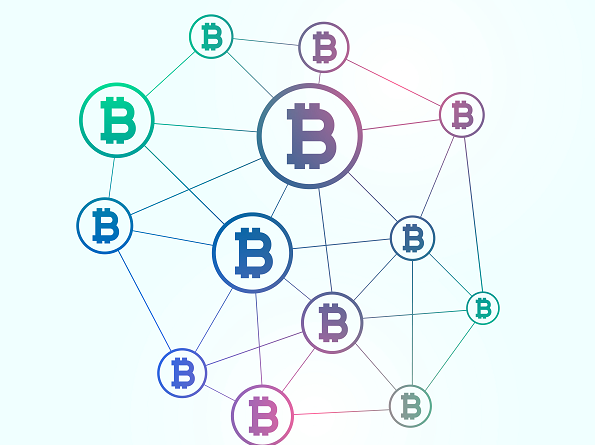Career in web development: Everything you need to know to get started

A career in web development is one of the most sought-after career paths today. Besides being a good fit for people who are new to programming, it has something for everyone – the creative nerds who can’t get enough of design and programming and the geeks who are suckers for problem-solving. So, if you are curious to learn about all that lies in store for you as a web developer, then let us be your fortune cookie!
In this article, we will cover the following topics:
1. What do web developers do?
2. Is web development a good career? How much can you earn as a web developer?
3. How to become a web developer?
What do web developers do?
Web developers are responsible for every mind-blowing, good, bad, and awful website that you have ever come across. The behind-the-scenes of a website can be essentially broken down into 2 steps:
i. converting the website design into a website using programming
ii. ensuring the smooth functioning of the website by maintaining a smooth flow of data between the server and user browser.
The first step is called front-end web development, and the second step is called back-end development.
What does a front-end web developer do?
As a front-end web developer, you will be responsible for creating everything that the audience can see and interact with. For example, this page! While the look and feel is created by a web designer, it has been programmed by a web developer. If you view this article on a smartphone, it would look different. This is again the work of a front-end developer.
Sounds exciting, right? So let’s find out about the web developer skills that you need to become a front-end developer.
Front-end developers need to be good at 3 programming languages – HTML, CSS, and JavaScript.
All web pages that you see are essentially created using HTML and CSS. HTML defines the structure of a web page for the browser, which includes the header, paragraphs, and images. CSS adds glam to the web page with style elements such as fonts, colors, and layouts.
However, you can only create static pages using HTML and CSS. If you want to breathe life into your web pages with the help of animated text and graphics, or user forms, you will need to know the ropes of JavaScript.
Once you have become a polyglot with programming languages, the next skill you get to learn is working with frameworks and libraries. Both libraries and frameworks help you reuse code, which fastens the process of web development.
A framework is a software that helps in implementing common functionalities like security, data validation, etc. Vue.js and React are the most popular frameworks for front-end development.
Libraries contain methods that you can call on instead of writing all the code yourself. The most frequently used library by front-end developers is jQuery, which contains various functions for JavaScript.
All of these skills help the front-end developers to create a website where users can find the relevant information. To create a user-friendly experience, they may work with UX designers. Apart from web designers and UX designers, front-end developers work with the back-end developers.
What does a back-end web developer do?
The web pages that you see are a result of both the front-end developer and the back-end developer’s code. For example, the data needed to display a web page is stored in a web server. The back-end developer is responsible for fetching this data and giving it to a user’s browser so that a web page can be displayed. They also ensure that the code is optimised so that the loading time doesn’t test a user’s patience and the website functions smoothly. For example, maybe the page speed is low because of too many data requests to the server. This problem should come to the back-end developer’s notice who can then work on making the page faster.
This feat is accomplished by managing servers and databases, and building applications. To do so, back-end developers put different skills into use.
Since they work with the front-end developers, they possess a basic understanding of HTML, CSS, and JavaScript. Other than these languages, they work with one or more of the server-side programming languages, such as Java, PHP, Ruby on Rails, Python, Node.js, and C#. They also need to know how to work with specific frameworks which will differ according to the project. For example, Django for Python.
Other key skills include knowing how to use databases and APIs.
In addition to front-end developers and back-end developers, the web development world has a third type of a web developer, full-stack developer. A full-stack developer is a web developer who is experienced in both aspects of web development. So, they can alternate between both the types of web development. They could also spearhead web development projects from end-to-end. Therefore, they must be good with managing teams and projects.
If you are curious to learn more, read Web development skills you need to land your first web development job.
Is web development a good career? How much can you earn as a web developer?*
Web development has been an in-demand skill during the pandemic as most businesses moved online. 39% of internships posted on Internshala consisted of web development roles. This demand would continue to rise as more businesses try to establish an online presence.
Now that you know that there’s a growing demand for web development, let’s find out how much do web developers earn in India.
The web developer salaries vary according to the role, experience, and location.
Entry-level front-end web developers earn ₹ 304k per annum, which can go upto ₹ 863k for professionals with 5-9 years of experience. Some cities such as Gurugram and Bengaluru pay more than the national average due to a higher cost of living in these cities.
Back-end developers have an average salary of ₹ 357k per annum at the outset of their career, whereas seasoned developers can make ₹ 737k.
Entry-level full-stack developers make ₹ 375k which can increase upto ₹ 12 lac to 14 lac after 5 years of experience.
The compensation also varies according to certain skills that may be in higher demand. For example, a back-end developer who knows Node.js can expect 11% more salary than the national average.
How to become a web developer?
1. Learning web development
A common misconception while learning web development is that you need a degree in Computer Science. While it would definitely be helpful to have one, you can learn web development even without it. In fact, a number of people who are new to tech start with web development, especially front-end development as it is easier to pick up on.
Make use of free resources – Intrigued by web development, but not sure if you are ready to dive right in? You can start by checking out free resources like Codeacademy and Khan Academy.
Enrol in an online training – If you are already dreaming of the day your first website goes live, then check out Internshala’s Web Development course. This training has been designed to build your core in web development by working on different projects. If you run into problems, you can post your queries, and get a response within a few hours.
Keep learning – Even after you have finished training, you should continue learning as the field of web development is constantly buzzing with new developments. You can learn about what to keep up with through blogs, such as SitePoint, Scotch.io, CSS-Tricks, and David Walsh.
2. Getting a job as a web developer
Build a portfolio – While you do not need a degree to get started with a career in web development, you do require a portfolio. To build your portfolio, you can start with creating projects around your hobby. For example, if you are into cooking, why not build a website around that? Other than working on your own ideas, you can do volunteer work. You can also share your work on GitHub so that you can receive feedback on it.
Do an internship – Internships can be a stepping stone to your career as a web developer. As an intern, you will get a chance to learn how web development is put into use by different companies. You will also be able to recognise and hone skills that you need to succeed in the web development career.
Get your first job – Once you have crossed off all the relevant skills on the checklist, it’s time to take the plunge, and start applying for the web development jobs!
Excited to start forging a career in web development? Get started with Internshala’s Web Development training. You can use the coupon code BLOG10 to get a discount of 10%.
*Salary figures from PayScale and Indeed
Image by Mudassar Iqbal from Pixabay



